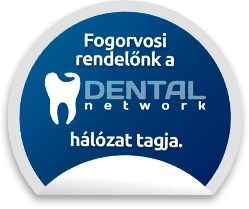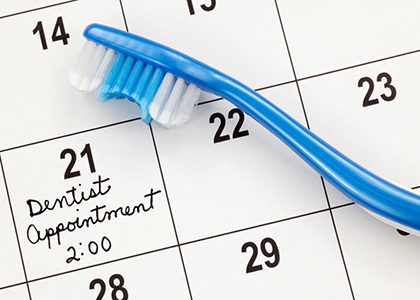Gingivitis Guide: Causes, Treatment, and Symptoms
Gingivitis can lead to sensitive gums, unpleasant breath, and in advanced cases, even tooth loss. According to some estimates, nine out of ten people in Hungary suffer from acute or chronic inflammation, which cannot be effectively treated at home. Fortunately, with proper periodontal treatment, gingivitis can be effectively managed and serious periodontal diseases can be avoided. Our article answers the most common questions about this condition.
What is Gingivitis?
Gingivitis, also known as the inflammation of the gums, plays a crucial role in protecting the dental bed. The gingiva is a specialized mucous membrane covered with non-keratinized squamous epithelium that tightly adheres to the bone, providing resistance against external forces during chewing.
Gingivitis occurs when there is acute or chronic inflammation of the gingiva. Initially painless, untreated gingivitis can lead to periodontitis, which in severe cases may result in tooth loss. Did you know that an average adult in Hungary is missing 10 teeth, often due to untreated gingivitis?
Causes and Risk Factors of Gingivitis
What causes gingivitis? After eating, food residues can accumulate on the teeth, in interdental spaces, and other parts of the oral cavity, forming plaque. This plaque creates an ideal environment for pathogenic bacteria if dental hygiene is inadequate. Below, we list factors that can increase the risk of developing gingivitis:
Tartar build-up
Hormonal changes during menstrual cycles
Diabetes
Consumption of tobacco products
Side effects of certain medications (e.g., calcium channel blockers and some contraceptives)
Leukemia
Hormonal changes during menopause
High-sugar diets
Endocrinological changes during adolescence
Hormonal changes during pregnancy
Genetic factors
Common Symptoms of Gingivitis
Since gingivitis is often painless in its early stages and its symptoms are not immediately noticeable, it is frequently detected too late by patients. We have compiled a list of the most common signs:
Discolored, red gums
Increased sensitivity in the gums
Frequent bleeding of the gums
Intense pain triggered by cold
Swollen gums
Strong pain on pressure
Persistently bad breath
Pocket formation around the teeth
Treating Painful Gingivitis
Are you suffering from painful gingivitis and looking for a reliable solution? Want to quickly eliminate this uncomfortable condition? Fortunately, gingivitis can be treated effectively with professional care. Instead of unreliable home remedies, always seek a periodontal specialist. Treatment typically involves thorough cleaning of the affected areas, including the removal of plaque and tartar using specialized dental equipment.
After treating gingivitis, it's important to focus on prevention. Follow these tips:
Use a soft-bristled toothbrush and clean the gum area gently but thoroughly.
Dentists often recommend using a special antibacterial mouthwash after treatment.
Use interdental brushes or floss to remove debris from between teeth.
Don't forget about tongue cleaning! A tongue brush or scraper can remove residue from the tongue surface.
Frequently Asked Questions
What can I do against gingivitis?
If you notice symptoms of gingivitis, consult your dentist immediately. Untreated inflammation can lead to tooth loss.
Can gingivitis be treated at home?
Unfortunately, gingivitis cannot be effectively treated at home. Without professional care, chronic inflammation can lead to gum recession. Thus, if you experience symptoms, consult your dentist.
Can over-the-counter medications treat gingivitis?
While over-the-counter antibacterial and anti-inflammatory mouth rinses, creams, gels, and sprays can be part of the treatment, it's important to consult your dentist before use.
Can gingivitis be treated with toothpaste?
Toothpaste alone cannot treat gingivitis. Professional plaque and tartar removal by a periodontal specialist is always necessary.
Can children get gingivitis?
Yes, due to irregular or inadequate oral hygiene, children can also develop gingivitis. In such cases, besides medical treatment, it's crucial to teach proper oral hygiene habits.
Can gingivitis occur during pregnancy?
Yes, hormonal changes during pregnancy can disrupt the oral bacterial flora, increasing the risk of inflammation.
Fehérvári Dental: Professional Dental Care in the Heart of Budapest
Since 1997, we've been committed to providing your family with the highest level of comprehensive dental care, from the little ones to the elderly. Our specialists cover all areas of dentistry, allowing us to handle complex treatments requiring multiple dental specialists on-site. Our clinic's professional and coordinated operation is evident throughout the entire care process, from specialist consultations to administrative tasks. Our dental practice represents high standards in layout and technical equipment. Our three-story clinic features three modern treatment rooms and a diagnostic imaging area (panoramic X-ray, teleradiography, CBCT, intraoral). A spacious elevator connects the floors, which is conveniently accessible for patients with limited mobility and those with strollers.
Book your appointment now!




















